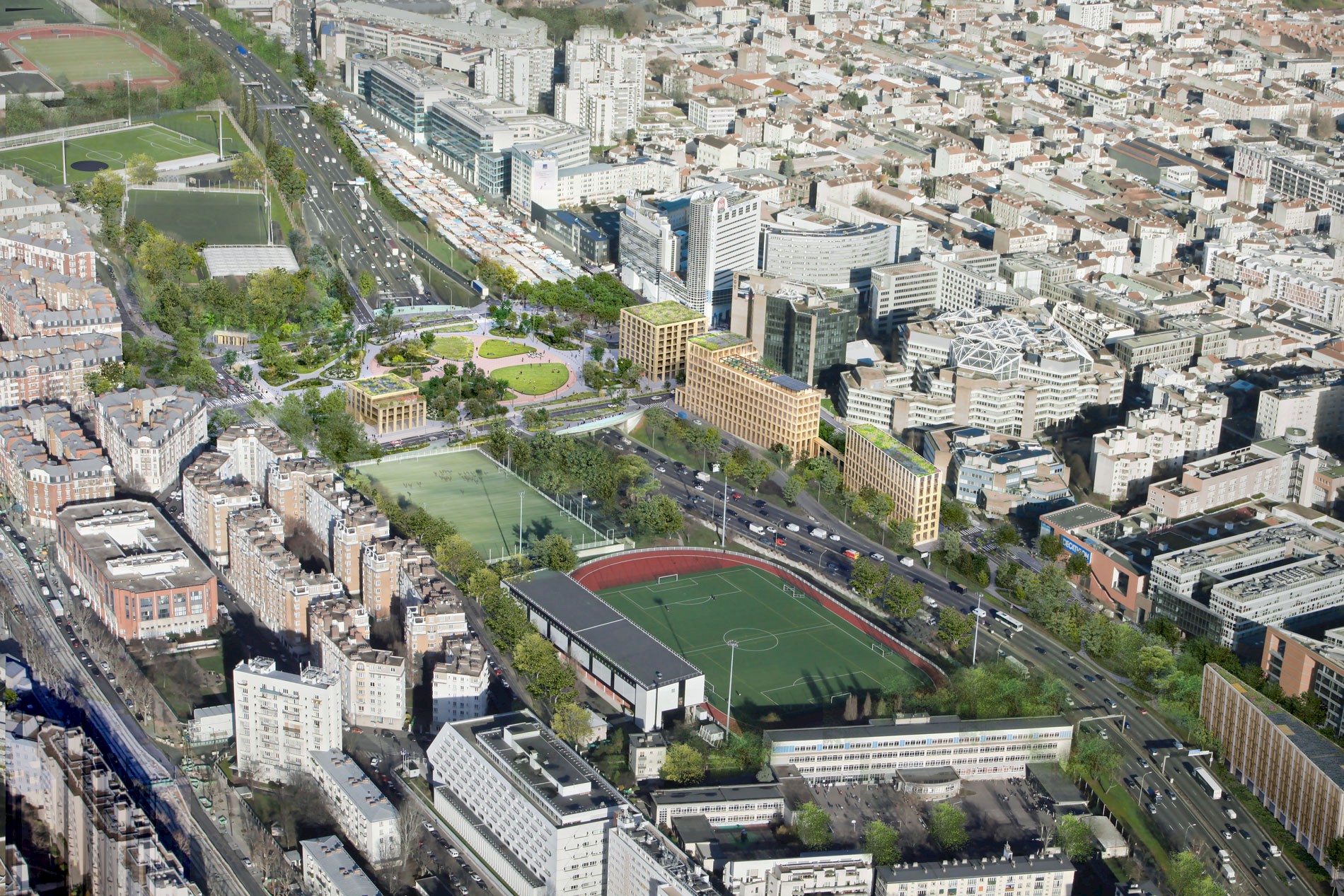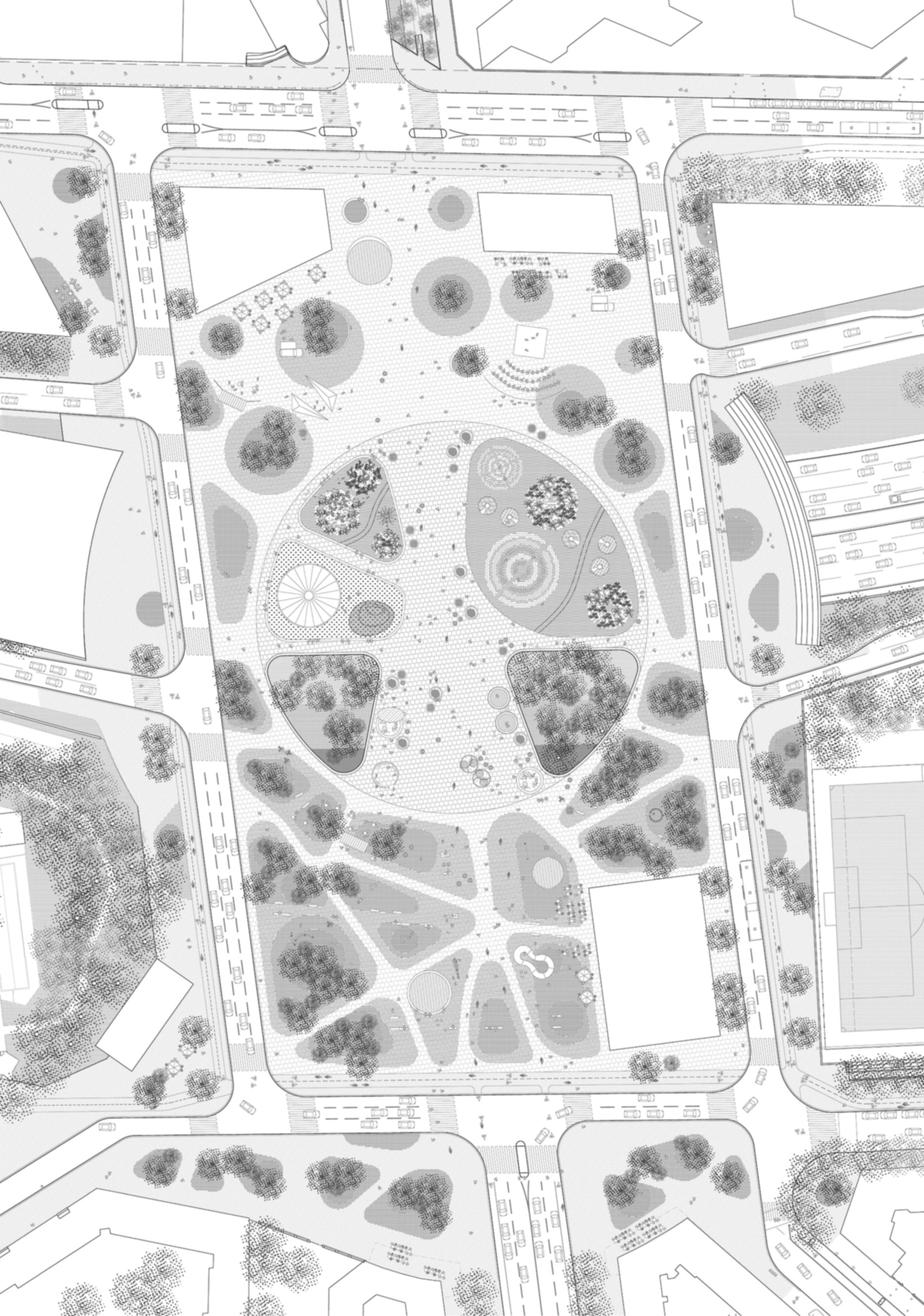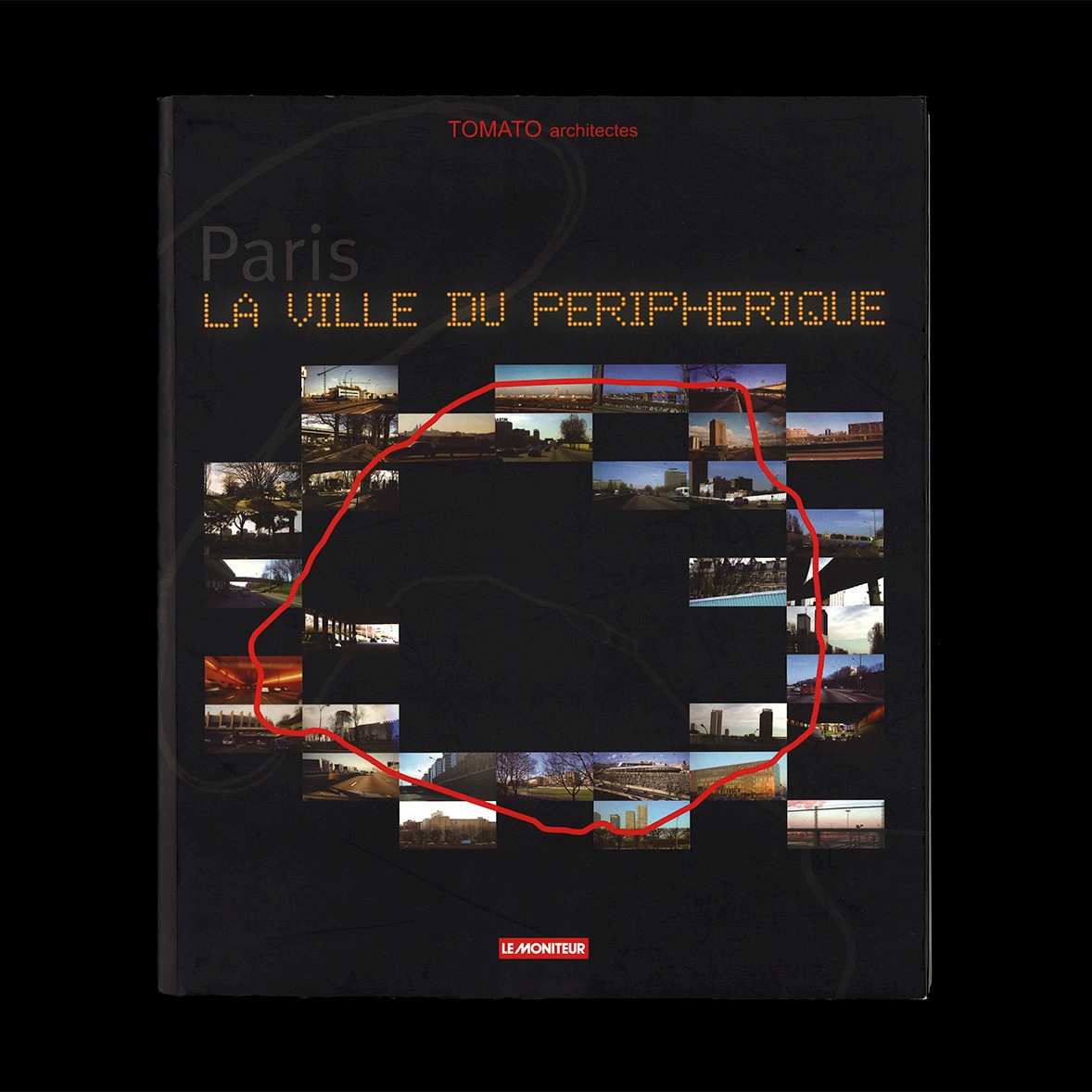Porte de Montreuil – Urban project
The Paris gates must become true squares of the Greater Paris to promote the rebalancing of the territories and create new places of exchange and meeting between cities. Identified as a strategic development district, the Porte de Montreuil urban project is structured around the creation of a metropolitan square, that is to say a unifying public space between the cities of Paris, Montreuil and Bagnolet which opens to multiple uses and promotes continuities of landscape.
It thus allows the improvement of the crossing of Paris ring road by contributing to the reduction of the motor traffic while regenerating the district by the creation of new constructions which punctuate the wider landscape.
Beyond the issue of the crossing of the central funnel, the public space project will allow the district to go beyond its condition of crossing points to become a real destination.
In the continuation of the TVK’s reflections on Paris ring road, the square aligns the changes towards smooth, secure journeys, a reduction in noise disturbance and air pollution. The logic of reuse of infrastructure leads to the consideration of the extant as a resource, by re-using the public space of today and by proposing light and innovative solutions. Thus, the gyratory function is preserved but the vehicles carried to the periphery, allowing the liberation of a generous pedestrian space and the assertion of a strong and identifiable shape. The funnel’s cover, thus freed from the road flow, becomes a light platform, a surface capable of accommodating multiple uses. The inscription of the square in the widest landscape sequence of the Parisian green belt allows it to be conceived as a responsible, permeable ecosystem where the intensified vegetation enables the refuge of biodiversity.
A part of the proposed lots was the subject of an international call for projects, Reinventing cities, ensuring them an overall architectural coherence, a diversified programme on the ground level and a zero-carbon objective. The Flea Market, marker of the territory, inserts itself into an open hall, in the place and the space of their current location.
Development of the Porte de Montreuil sector
Urban design : Ville de Paris, Direction de l’Urbanisme
Public space : Ville de Paris, Direction de la Voirie et des Déplacements and SEMAPA
Paris 20th district, France
55,000 to 70,000 m²
Studies in progress 2017-2019
TVK (lead architect and urban designer), Barrault Pressacco (architect and urban designe)r, OLM (landscape architect), Quelle Ville (programming consultant), Bollinger Grohmann (structural engineer), OGI (Roads and utilities), Citec (traffic and movement consultants), Le Sommer (environmental consultant), Acoustique Conseil (acoustics engineer)
Setec-tpi (Bureau d’étude mandataire), TVK (architecte urbaniste), OLM (paysagiste), Bollinger Grohmann (BET structure), Citec (BET Mobilité), ON (concepteur lumière), Ville Ouverte (consultation et information du public), Coloco (préfiguration)
Carbon neutrality
City of Paris
Caroline Desile, Vincent Hertenberger (project directors), Julie Eymery, Irati Lasa, Ilaria Maccan, Clément Masurier, Lucas Meliani, Chloé Monchalin, Jihana Nassif, Pauline Parcollet, Elise Rambaud, Maria Salmatzidou
MyLuckyPixel
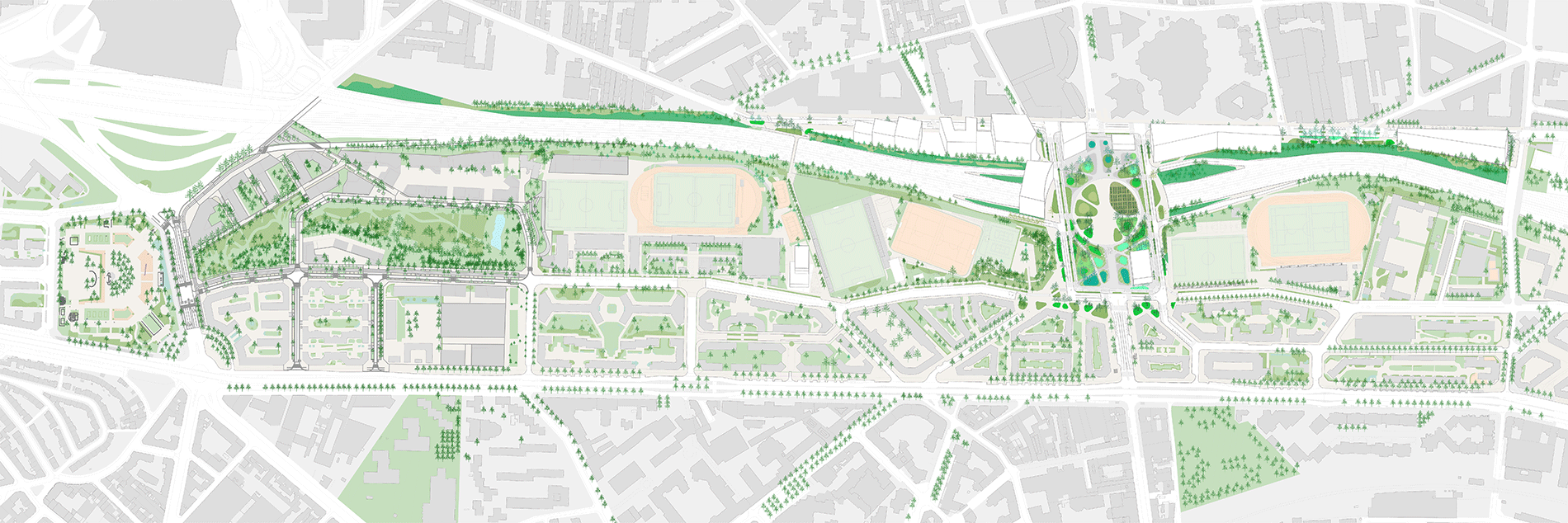
The Porte de Montreuil urban project is structured around a metropolitan square, surface of exchanges between the cities of Paris, Montreuil and Bagnolet
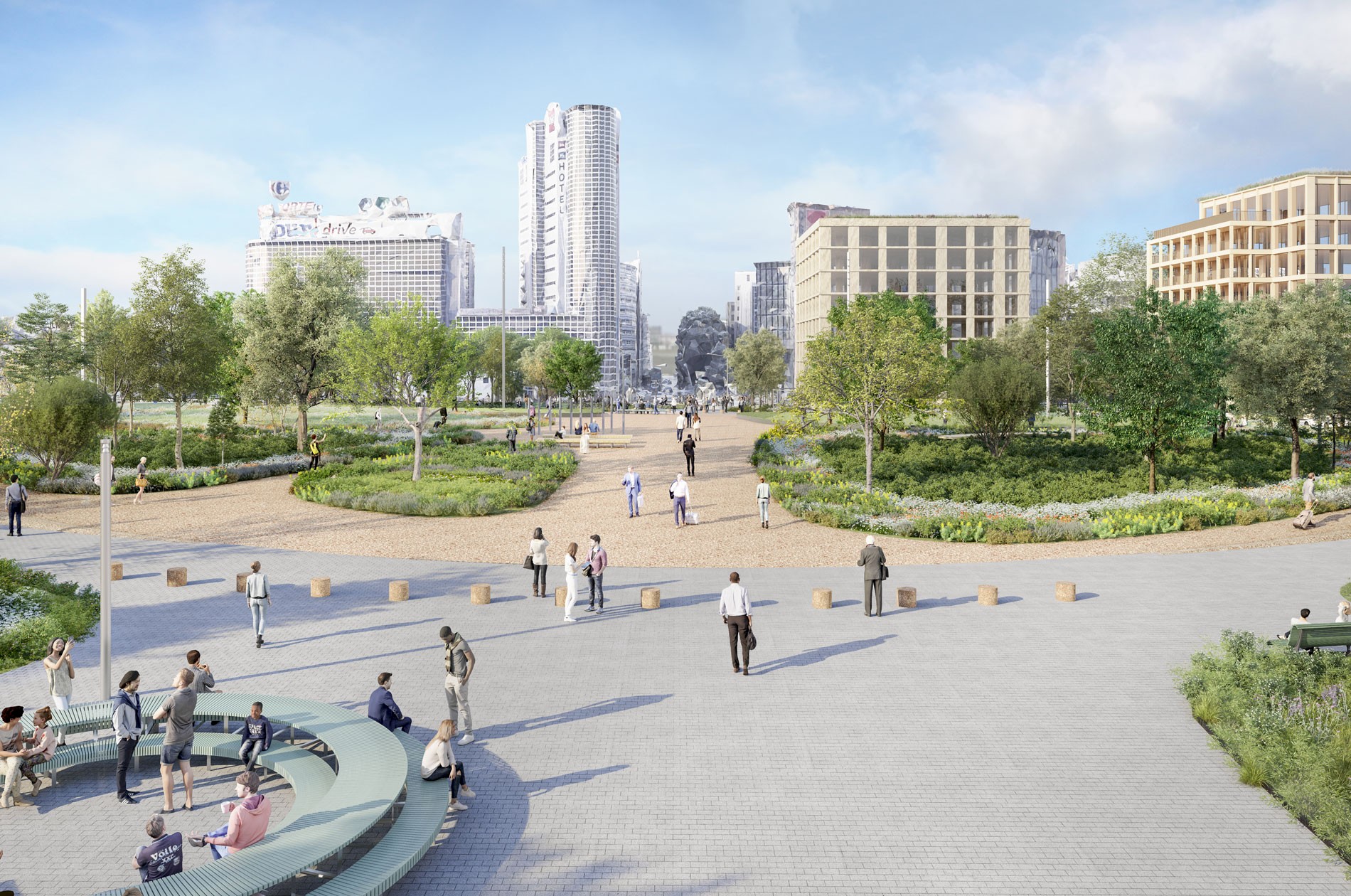
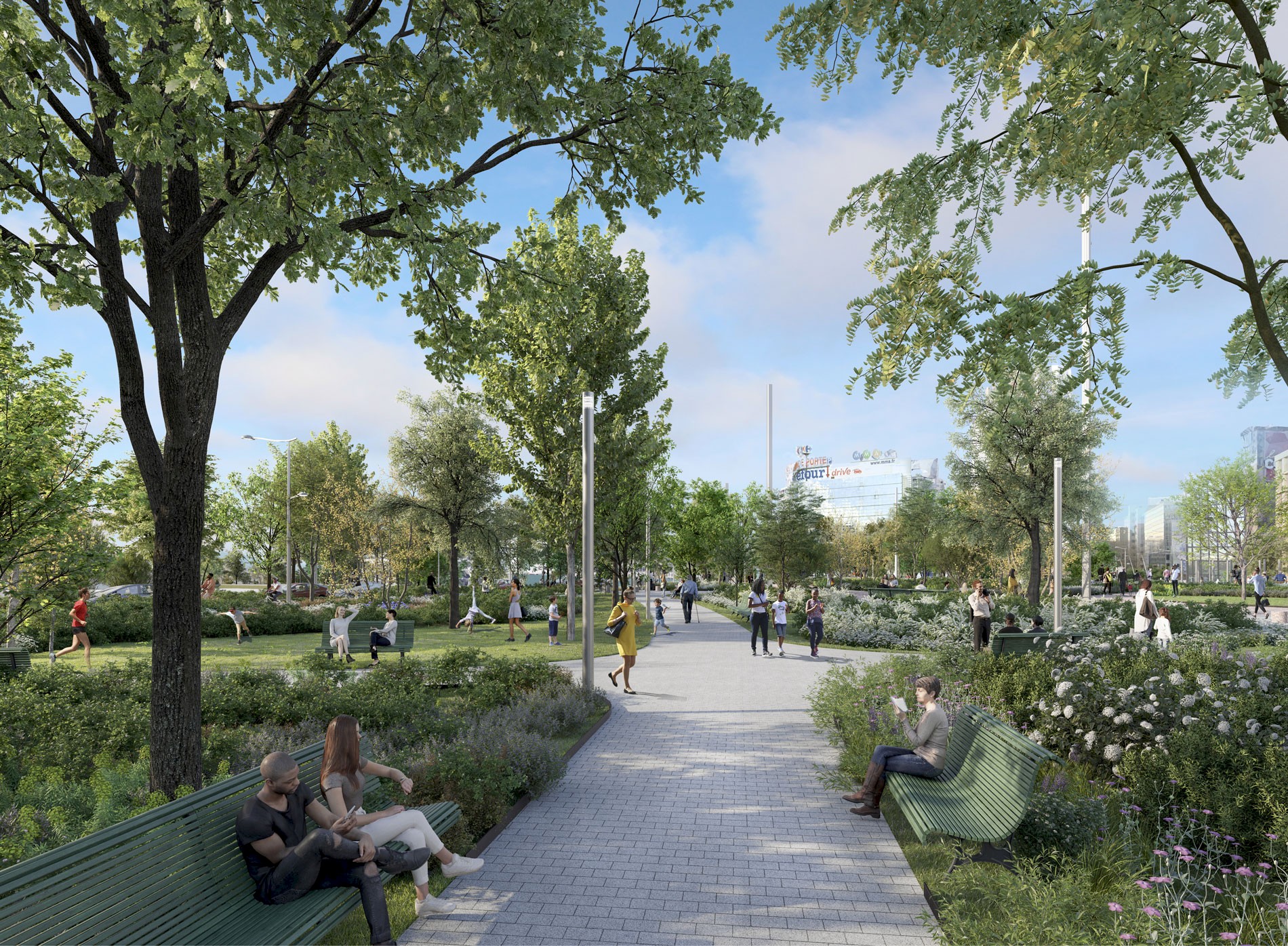
The square stretches the green belt as far as the cities of Montreuil and Bagnolet by offering a permeable and heavily planted soil
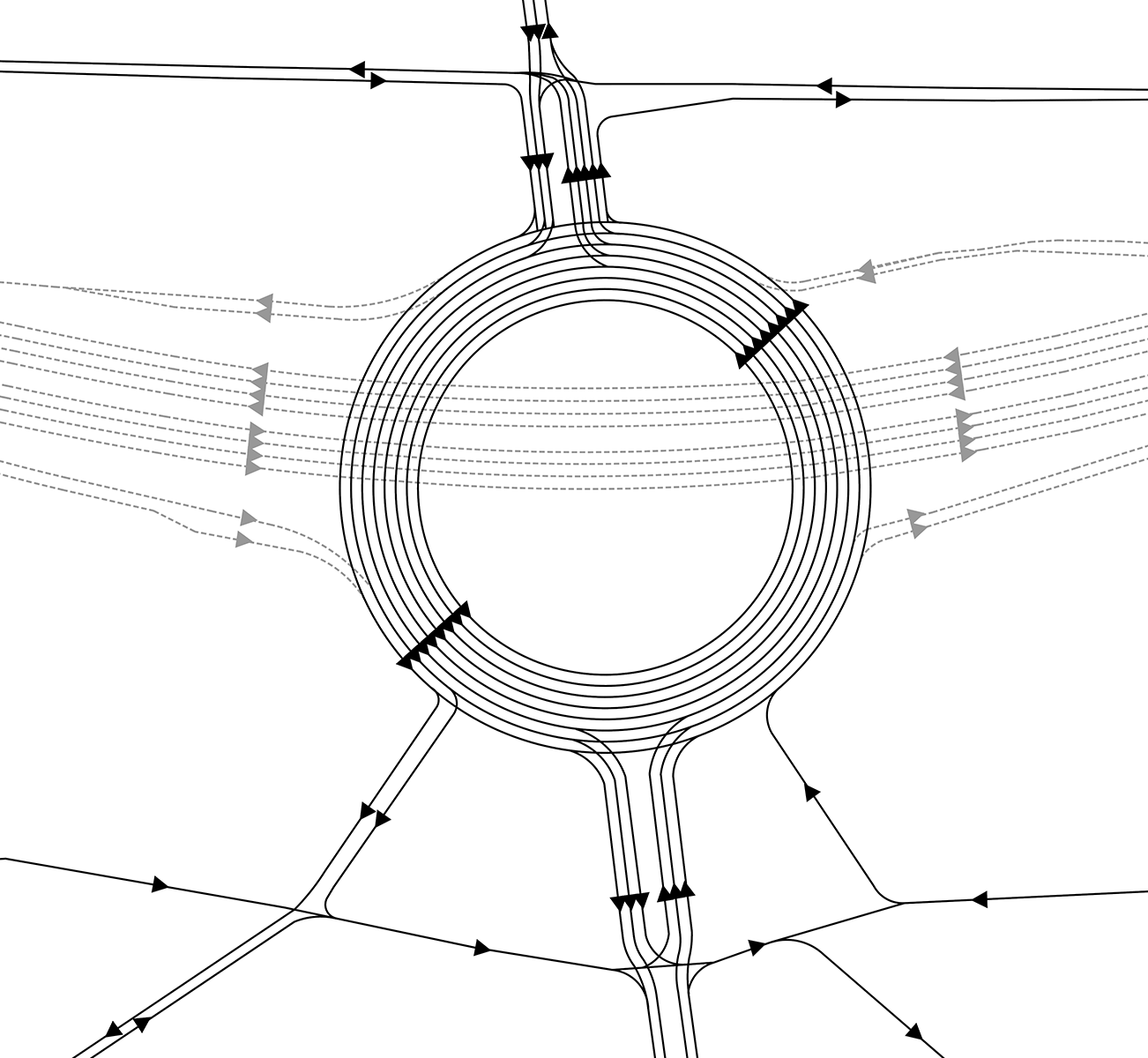
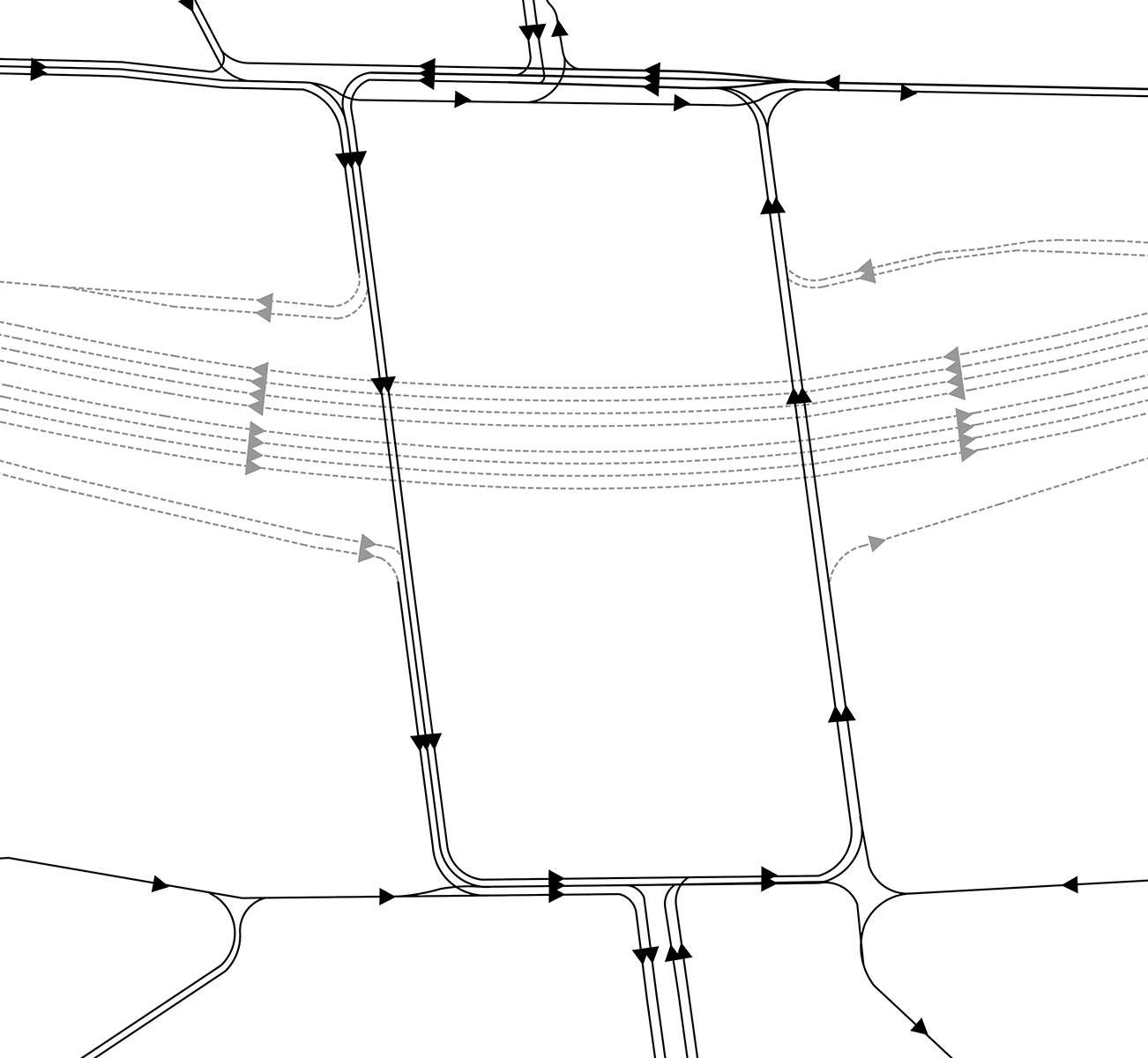

The funnel cover is conceived as a platform able to accommodate multiple uses.
